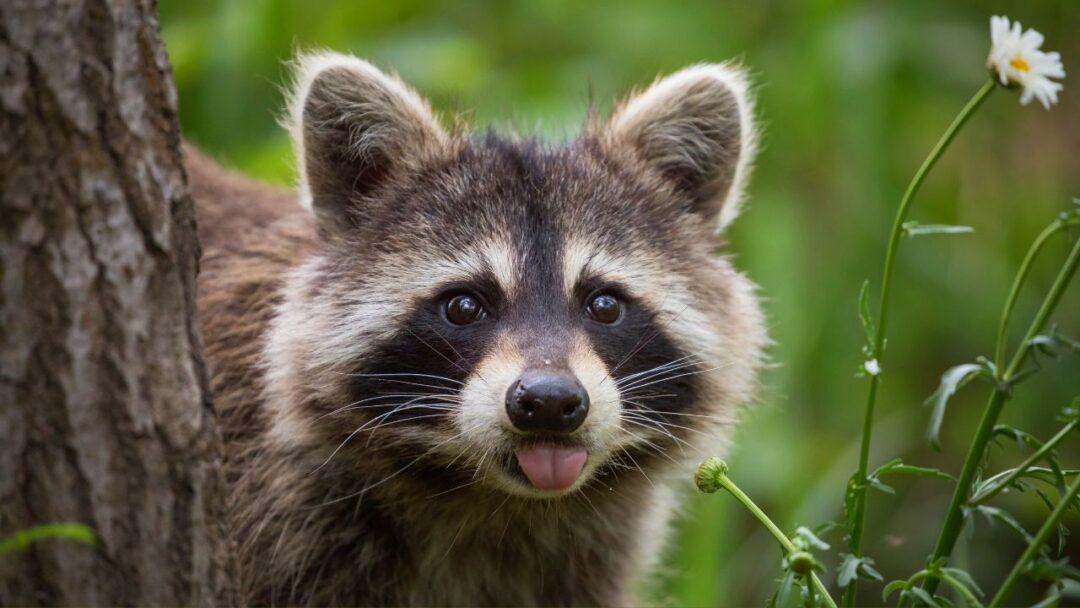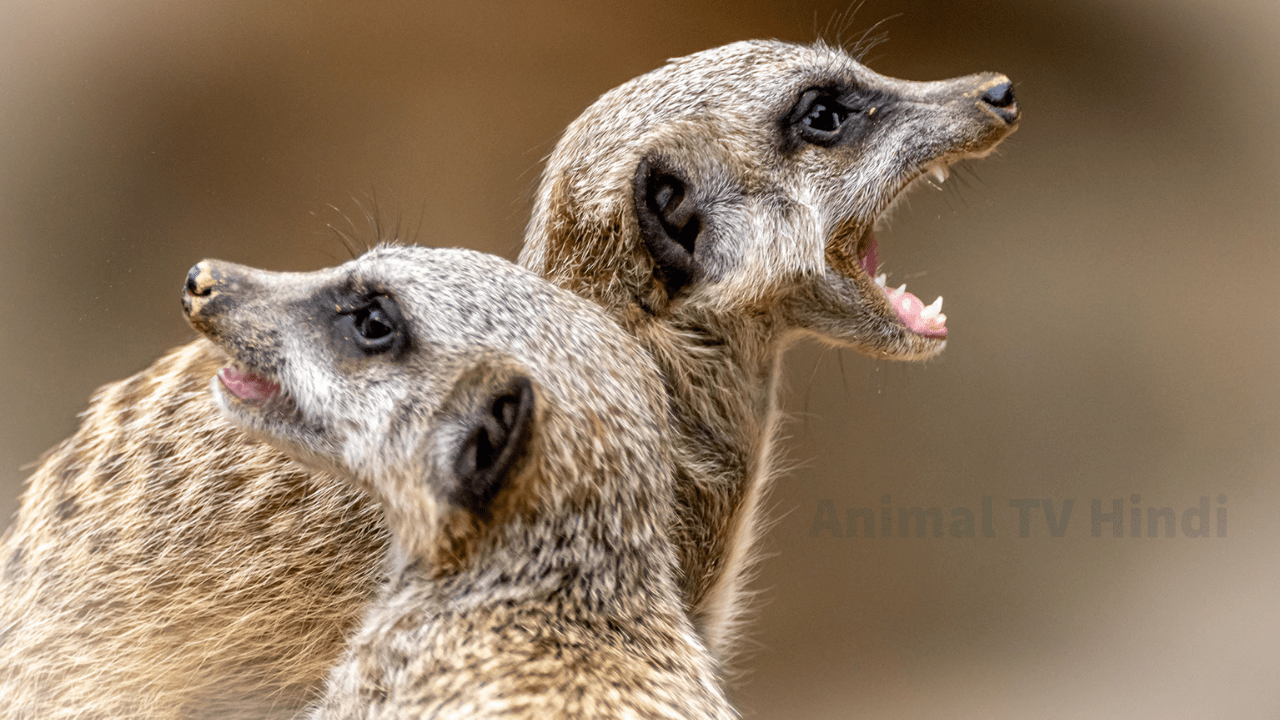Table of Contents

Introduction
Welcome to an adventure in the fascinating world of Raccoons! Raccoons are intriguing species that live all over the world and are often linked with mischief and curiosity. In this post, we will look at ten fascinating and lesser-known facts about raccoons, such as their various species, intriguing traits, myths surrounding them, and their importance to the ecosystem, before concluding with a deeper understanding for these magnificent creatures.
10 Fascinating Facts About Raccoons
- The Common Raccoon (Procyon lotor): The common raccoon, also known as the North American raccoon, is the most well-known and widespread species. Its distinctive black mask and ringed tail make it instantly recognizable.
- International Raccoon Cousins: Raccoons are not limited to North America; they have relatives across the world. The species include the crab-eating raccoon (South America), Cozumel raccoon (Mexico), and the fascinating Japanese raccoon dog (tanuki).
- Raccoons as Omnivores: Raccoons are opportunistic eaters, adapting their diet to the available resources. While they primarily consume plants, fruits, nuts, and seeds, they are also known to feast on small animals, insects, and even garbage.
- Intelligent and Dexterous: Raccoons are highly intelligent animals. They possess nimble hands with incredible dexterity, allowing them to manipulate objects and open various containers.
- Nocturnal Creatures: Raccoons are primarily nocturnal, meaning they are most active during the night. Their keen night vision and sensitive hearing aid in navigating their surroundings and finding food.
- Raccoon Vocalizations: These creatures communicate through a range of vocalizations, including purring, chattering, hissing, and growling. They also use a variety of body language cues to express their intentions and emotions.
- Enigmatic Masked Bandits: Raccoons’ distinctive facial markings have earned them the nickname “masked bandits.” However, contrary to popular belief, these markings do not serve any criminal purpose; they are a result of their unique coloration patterns.
- Mysterious Raccoon Hands: Raccoons have remarkably sensitive and agile forepaws. Their hands are akin to human hands, allowing them to grasp objects, turn doorknobs, and even unlatch complicated locks.
- Raccoons and Water: Raccoons have a natural affinity for water and are skilled swimmers. They often wash their food in water before consuming it, earning them the reputation of being clean freaks.
- Adaptable Urban Dwellers: Raccoons have successfully adapted to urban environments, thriving in cities and suburbs. They are known for their ability to exploit human-made structures, such as attics, chimneys, and garbage bins.
Mysterious Facts and Myths
- Raccoon Guardians: In some Native American folklore, raccoons are considered guardians and protectors of the animal kingdom.
- The “Washing” Myth: While raccoons are often depicted “washing” their food, this behavior is actually a form of tactile exploration, where they assess objects and their edibility.
Important to the Ecosystem
Raccoons are important members of the ecology. They help to seed distribution and plant growth as omnivores by eating fruits and nuts. They also maintain a healthy ecology by controlling the populations of tiny animals and insects.
Are raccoons dangerous?
Raccoons are not typically aggressive toward humans, but they can become defensive if they feel threatened or cornered. It’s best to avoid approaching or provoking raccoons, especially if they’re acting aggressively. If you find a raccoon on your property, you should call a professional wildlife removal service to handle the situation.
What do raccoons eat?
Raccoons are omnivorous creatures with a varied diet. Fruits, vegetables, nuts, insects, small mammals, birds, eggs, and even garbage are among the foods they consume. Their opportunistic nature allows them to tailor their diet to the food sources available in their environment.
How long do raccoons live?
Raccoons typically live for about 2-3 years in the wild due to factors such as predation, disease, and competition. Raccoons that live in captivity or in urban environments with fewer risks and abundant food sources, on the other hand, can live for 10 years or more.
Do raccoons carry diseases that can be transmitted to humans?
Yes, raccoons can carry diseases that are contagious to humans. Rabies is one of the most well-known diseases associated with raccoons. To reduce the risk of disease transmission, avoid direct contact with raccoons and their bodily fluids. If you see a raccoon acting strangely or suspect it is infected, contact your local animal control agency for assistance.
How can I prevent raccoons from entering my property?
There are several preventive measures you can take to keep raccoons away from your property. Make certain that your garbage cans are securely sealed and inaccessible. Tree branches that may provide easy access to your roof or attic should be pruned. Close any gaps or potential entry points around your house. Installing motion-activated lights and sprinklers can also help keep raccoons away.
Are raccoons good climbers?
Yes, raccoons can climb quite well. They have powerful limbs and sharp claws that allow them to easily scale trees, walls, and even chimneys. Their ability to climb allows them to find food, avoid predators, and seek shelter in high places.
What should I do if I find a baby raccoon without its mother?
If you come across a baby raccoon that is not with its mother, first observe the situation from a safe distance. The mother may be nearby and will return to care for her children in some cases. If you believe the baby raccoon is orphaned or in immediate danger, seek advice from a local wildlife rehabilitation center. It’s important to remember that in many places, raising a baby raccoon without the proper knowledge and permits is illegal.
Can raccoons swim?
Raccoons can swim very well. They have partially webbed feet that allow them to move quickly through water. Raccoons are known to forage for food in bodies of water such as rivers, lakes, and streams as part of their habitat.
Are raccoons nocturnal?
Raccoons are primarily nocturnal animals. They are most active at night, when they are looking for food and exploring their surroundings. However, in urban areas where there are fewer predators, raccoons may adjust their behavior and become more active during the day.
Can raccoons cause damage to property?
Yes, raccoons can cause property damage, especially when looking for food or shelter. They can cause structural damage by openings in roofs, attics, and chimneys. Raccoons may also destroy bird feeders, dig up gardens, and raid garbage cans. Preventive measures, such as securing potential entry points and removing attractants, can help reduce raccoon-caused property damage.
Conclusion
Raccoons are fascinating animals with distinct features and adaptations. They are extraordinary animals due to their intelligence, dexterity, and adaptability. Understanding their role in the ecosystem allows us to gain a better appreciation for the important contribution they make to the natural world.
10 Fascinating Facts About Ostriches : NEXT POST




